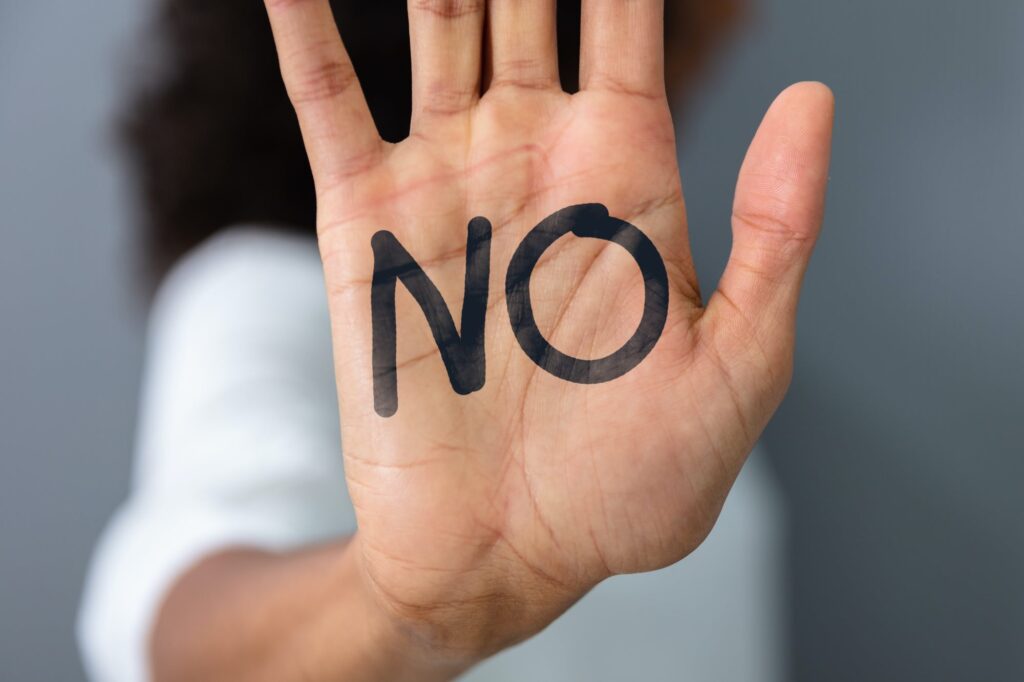
With her heart pounding, she took a deep breath to steady her nerves. This was something new for her. She had always gone along with whatever others wanted. Voice trembling, she said the word that she was sure would end the friendship, “No,” then held her breath waiting for the fallout. When her companion simply accepted the answer and moved on, she later spent hours running the conversation through her mind, berating herself for not being more agreeable.
Can you relate to this? Many who are food dependent feel intense guilt when saying no and don’t realize as with most recovery behaviors, it’s a skill that takes practice. One of the most important things to remember is that refusing to do something that is dangerous to your recovery is nonnegotiable. In other words, those in recovery must find a way to develop this skill.
Eating food that’s not on our food plans to please other people is not what recovery is about. Being able to say no to food we don’t eat, to attending events that are dangerous to our recoveries, to being with people who trigger self-destructive behaviors, and to opportunities that will interfere with our recovery schedule are crucial to long-term recovery.
In short, it simply is not possible to stay in recovery from food dependency without, at one time or another, saying no. That being so, there are a few things we can do to make it easier until we develop this skill.
To begin, understand that if you’ve never said no before, it will take time for you to feel comfortable doing that. Don’t expect yourself to be a pro the first or even second or third time you say no. Simply accept that you may feel awkward, uncomfortable, scared, or even fragile when you first begin saying no. It’s okay. A good way to manage these feelings is to make a plan to do something recovery related after you’ve said no. Perhaps you can attend a Twelve-Step meeting, call your sponsor, or schedule an appointment with your counselor.
Next, realize that it’s not the other person’s job to make you feel better about saying no. Sometimes we look to others to make us feel better or for approval to do the things we need to for our recoveries. While this is understandable, it really isn’t logical. It’s not anyone else’s job to make you feel better about yourself or your actions. That’s your job.
Finally, acknowledge that you’re doing a great job! Even if you are filled with guilt and want to crawl into a corner alone, recognize that you’ve taken a good first step in practicing to say no and that each time you do it, it will get easier.
